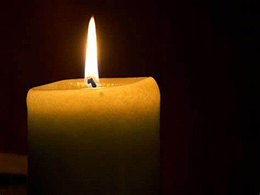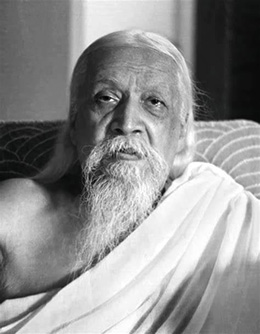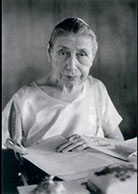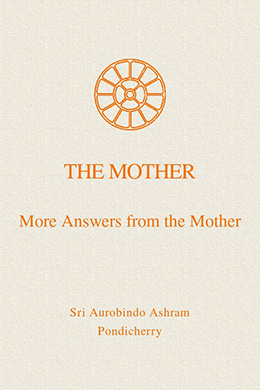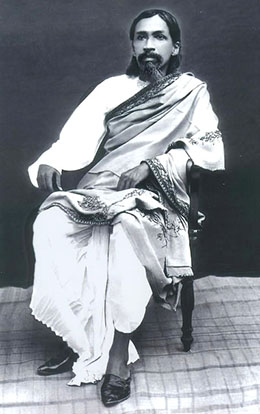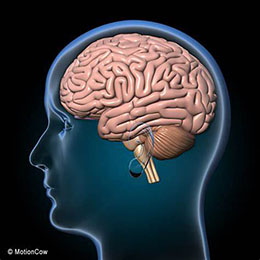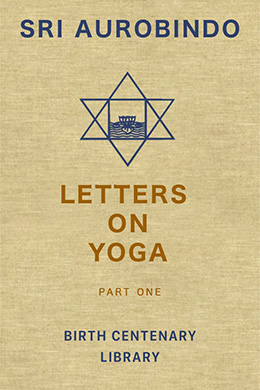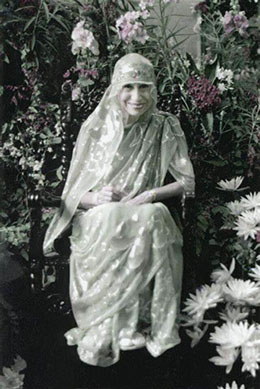Consciousness and health
The Flame of a Candle Can Light up Another: An Inspirational Playlet
“Whosoever has courage can give courage to others, just as the flame of the candle can light up another (1).”
Editor’s Note
This play tackles the contentious issue of suicide in a radical way. It uses seed-ideas and themes quite judiciously from the vast storehouse of Sri Aurobindo’s and the Mother’s writings. The central theme revolves around confronting fear with courage. One must know how to face boldly what one fears. Suicide does not solve anything. One can get reborn into more difficult circumstances. It would be more judicious to allow the higher destiny to intervene in the normal destiny of the being to change the course of events.
The inadequate management of pain is one of the reasons why passive euthanasia is sought. The Mother speaks of bringing into oneself a kind of immobility that cuts off the contact between the place of pain and the brain. And then invoke the inner peace and trust on that part which feels the pain. In fact, the bringing down of the Divine Consciousness to replace the usual consciousness is one of the cardinal motives in the phenomenon of the spiritual transformation. This not only reduces pain but helps to create new organs or transform gross organs into subtle centres of transmission of energy. This dramatic piece explores these thematic insights in an innovative manner.
Abstract
This play starts with the central character, Ashok, virtually bankrupt, contemplating suicide. His life is transformed when a stranger approaches him and eventually convinces him of the absurdity of his thinking. Every word that is then imparted to him is imbued with the Mother’s and Sri Aurobindo’s Wisdom and Light. Ten years later, they meet again and the roles are reversed. The play also examines the concept of destiny and the states of fear, pain and healing through the descent of higher consciousness (among other subjects) in this insightful explanation on the essence of true living.
Characters in the Play: Ashok Strangers
Part One
(A voice announcing from the background): The soul that is called to this deep and vast inward change in Yoga may arrive in different ways. It can come to some by the pressure of outward catastrophic ircumstances. Meeting a stranger brings a change to a calamitous situation in Ashok’s life.
Ashok walks very slowly, looking depressed, loosens his tie, removes his watch, and then sits on the cement parapet. He keeps his watch beside him on the parapet. Ashok is sitting dejectedly, bent forward covering his face with his hands, his elbow on his knees. Ahead of the cement parapet is the sea.
A stranger walks in and asks Ashok: Brother, what time is it?
Ashok does not reply.
Stranger (sees a watch on the parapet): Oh, somebody has forgotten his watch here.
Stranger (picks up the watch and sees the time): Is this your watch, it seems to be running very slow for this was the time I had started from home?
Ashok (murmurs): Everything is moving slow.
Ashok does not look at the stranger but takes the watch and keeps it on his lap.
Stranger: Brother, it is advisable to keep your watch 10 minutes ahead rather than keeping it slow. At least you will always reach on time or before time but will never be late.
Ashok does not reply.
Stranger: There is a saying that, “Time and Tide wait for no man”. What a coincidence we are sitting by the seaside where just now there is a high tide. You know there is one more thing that does not wait for anyone. Do you know what it is?
Ashok: I am not interested in knowing.
Stranger: (laughs) Time and Tide and customer, waits for no one. (Laughs again) If customer does not get from your shop what he is looking for, he will go and buy from another shop. I am curious, may I know why your watch is running so slow.
Ashok: The battery of the watch hasn't been changed.
Stranger: Oh! Give me the old battery. I will get you a new battery now; the shop is nearby. We must all maintain the right time.
(Ashok puts the watch from his lap into his pocket.)
Ashok: (angrily) I'm not interested in changing the battery.
Stranger: I just wanted to help you. There is no reason for you to be afraid of me. I am not a thief who will run away with your watch. There is nothing wrong in having a friendly talk. And what did I say to upset you?
Ashok: (with anger) What did you say? First, asking the time, then advising me to keep the time 10 minutes ahead, then wanting to buy the battery for me. Can’t you understand a simple thing, that I am not interested in talking to you? Please excuse me (folds his hands), I do not want to talk.
Stranger: Hmm. Hey! Listen, listen, what a strange person!
(Ashok stands up and walks few steps away. The stranger also gets up and goes away, then comes back with two bottles of cold drinks. The stranger comes near Ashok and speaks to him.)
Stranger: Brother, please have this cold drink. The weather is really warm and this drink is chilling cold, it will freshen you up.
Ashok: I don't want to drink any cold drinks.
Stranger: Does not matter. Then I will order some hot drink? Tea or coffee, which would you prefer?
Ashok: (angrily and loudly) I don’t drink tea or coffee.
Stranger: Oh! In that case do you drink ‘that’ hot drink? Don’t worry, tell me which brand, I can get you any brand, I have contacts.
Ashok: Oh, you are crossing all your limits. What do you mean by ‘that’?
Stranger: Mean?
Ashok: From the time I've been sitting here you have been irritating me. First, why is the watch running slow, then battery, then cold drinks, then tea, coffee.
Stranger: But….
Ashok: One cannot sit here peacefully?
Stranger: No man, I was just doing all this for you.
Ashok: For me?
Are you my father or my relative that you are offering a cold drink? Who the hell are you? That means you do not see in what condition a person is, in what situation a person is, what are his problems, you do not know, you just go on talking and talking.
Stranger: Oh, my brother, listen to me, why are you disturbed? Yes, I agree that I am no relative of yours but please sit down, my brother. Tell me what is your problem?
Ashok: What will happen by telling you?
Stranger: The burden that you seem to carry may become a bit lighter after sharing it with me. A problem shared is a problem halved. It may be possible that I can help you, but please drink this before it gets hot. It may help you to relax a little.
There is a silence for some time, then Ashok changes his position and accepts the bottle of drink. He sips the drink and feels a little more relaxed.
Stranger: Do tell me, brother. I shall only listen to you.
A while later, Ashok speaks, looking down.
Ashok: From my childhood I was an ambitious boy. Always wanting to come first and I was brilliant in my studies. I grew up in a middle-class family and my parents were proud of me. My parents took pride in all my achievements, but they could not afford my higher studies. Then I got scholarships from a few organisations. I dreamt of becoming a big industrialist, who would have people working under me and I would be their boss. I did not wish to report to any boss above me, rather, I should be the boss. I built a small start-up business by taking a bank loan. My attitude of always winning helped me to become a successful entrepreneur. Within a few years, I was awarded ‘Dynamic Entrepreneur of the Year.’ To me the sky was the limit. My competitors were afraid of my growth and were jealous of my success. Then I bought a big bungalow in the poshest area of the city. Now I have a chauffeur-driven Mercedes. I have everything one could have. But my high ambition to grow fast made me make one wrong investment and everything has started sinking. It had become a habit with me to argue and always prove that all my decisions are always right (stops speaking).
Stranger: Most people in power do that. It is their ego that makes them argue, to prove they are always right.
Ashok: Oh! Maybe! To prove that I was right I invested more in that area. To salvage that mistake, whatever I spent was also lost. It was like rolling down a hill. After a lot of effort, everything I had was mortgaged, my bungalow, my office. And now within a week I have to repay the bank loan. If I do not repay the loan within a week’s time, along with my family, I will be on the road. I, the winner of ‘Dynamic Entrepreneur of the Year’ will be declared bankrupt (sobs). Everything has collapsed for me.
Stranger: So now?
Ashok: Now what? I am sitting here and thinking what I should do. The only thought I am having is of dying; just drown myself in the sea instead of living in shame.
Stranger: Oh, you feel like that? But surely, is that the best solution?
Ashok: (crying) To me it looks like the only solution.
Stranger: If people know the real truth they would never think of suicide. Generally, people think that life is a sea of troubles, and then death is an eternal peace. But it is not at all like that. Suicide is a totally irrational thing. Do you know the situation one can land in after committing suicide?
Ashok: (crying and shaking his head to convey No)
Stranger: When one goes out of life in suicide one goes straight into a vital world. You know, a terrifying world of lower desires which is made up of all lower passions and ignorance. To explain this let us take an example of one having a nightmare when asleep.
Ashok: I'm facing a nightmare right now.
Stranger: In sleep, when one goes into this terrifying vital world, one gets the nightmare, which is full of frightening and terrifying experiences. The remedy out of that nightmare is to wake up and rush back immediately into your body. But in suicide when one has destroyed one’s body, one no longer has a body to protect oneself. So, one finds oneself in a perpetual nightmare, which is not very pleasant.
Ashok: How do you know all this? You are still living.
Stranger: (laughs) I have a friend in the Sri Aurobindo Ashram who has shown me the Mother’s writings.
Silence for some time.
Ashok: If the Mother has said it, then it must be true. I have heard a lot about the Sri Aurobindo Ashram. Sri Aurobindo’s and the Mother’s philosophy, which is too high for a common man like me but I do have faith in them.
Stranger: Regarding suicide, the Mother further points out that if you run away from this world, you will have to come again, probably in worse conditions and you will have to do everything all over again. It is much better not to be a coward, to face the present situation and to make the necessary effort to conquer it.
Ashok: But what can I do now? Should I go to the people working under me and tell them that from tomorrow you will all have lost your jobs? Are all the grand speeches I used to give just hollow talk?I will not be able look my son in the face and talk to him. What will I give to my son, the name of a bankrupt father?
Stranger: You know who is really a bankrupt person? The worst bankruptcy in the world is a person who has lost his enthusiasm.
Ashok: It seems like it is my destiny! What is written in one’s kismet, destiny, how can it be changed?
Stranger: Ah, destiny? What is destiny?
Ashok: What is fated when you are born, that is destiny.
Stranger: To understand what is destiny we must know that human beings are made up of a combination of several entities. For example, we have our physical being, that is our body. Then we have another being which consists of our desires, our passions, our ambitions, our emotions. We can call that our vital being. Then human beings have a mind that can think and create new things and that is our mental being. Beyond the mental there are other planes. For example, a scientist when he gets an intuition from above what happens?
Ashok: He discovers an entirely new thing.
Stranger: Yes, that is the higher part of our being.
Stranger: Now, each state of our being carries within it its own destiny. And it is the combination of all these which results in the destiny of the individual.
For example, physical destiny comes from one’s parents. Suppose a person has good genes, then one can have a healthy body and can have a long life. But then there comes into play the formation of his vital being, the being of desires and passions, also of impulsive energy and active will. This vital being brings with it its own destiny. For example, if a man, born with a very good physical balance and who ought to live in very good health, is driven by his vital to all kinds of excesses, bad habits and even vices, he can in this way partly destroy his good physical destiny. But the problem is much more complex, for, to the physical and vital destinies there is added the mental destiny, the soul destiny, and many others things.
Ashok: What you are saying makes sense.
Stranger: On the higher state to our physical and vital is our mental being. Suppose the physical destiny is weak due to genes, but due to mental control one leads a disciplined life, does regular exercises, āsanas and eats nutritious food, then the physical destiny will change and he can live much longer than what his physical destiny would have otherwise allowed him to live. So, if we allow the highest part of our being to intervene, their action will be necessarily beneficent to us. The art of living would then consist in maintaining oneself in one’s highest state of consciousness and thus allowing one’s highest destiny to dominate in life. So, one can say without any fear of making a mistake: be always at the summit of your consciousness and the best will always happen to you.
Ashok: But how to maintain oneself in a higher state, higher than the mental?
Stranger: Yes, reaching and maintaining this summit is not easy. If this ideal condition turns out to be unrealisable, the individual can call upon his highest destiny by aspiration, prayer and trustful surrender to the divine Will. Then, in proportion to the sincerity of his call, this higher destiny intervenes favourably in the normal destiny of the being and changes the course of events. It is events of this kind that appear to the outer consciousness as miracles, as divine interventions.
Ashok: How beautifully and with what depth you explained! How do you know all this?
Stranger: I told you that I have a friend in the Ashram who has shown me these writings from the Mother and we have discussed these ideas.
Ashok: Oh yes, yes.
Stranger: So, you can pray to the Almighty.
Ashok: Up till now I have never prayed. I have always believed that with my will-power I could achieve everything.
Stranger: Precisely, this is the time to pray. There is one secret I wish to share with you. When one wants to develop some ability or come out of a problem, one can achieve that by strong and sincere aspiration. Aspiration is a yearning, a longing for higher things. This aspiration, this longing can be in a form a prayer. And all sincere aspirations are always fulfilled.
Ashok: I hope I can get out of this problem.
Stranger: You will surely come out of it; sincerely pray with longing, yearning and circumstances will change for you.
Ashok: What you are saying may be true, but I am in a situation where the circumstances are beyond my control. I do not know how to act.
Stranger: When you find yourself in a situation when things are not completely under your control, try and see in the whole mess what is under your control, however small that action may be.
Ashok: I know that there are a few areas which are still under my control, but these areas cannot give the impact needed to come out of the problem. These areas are too insignificant compared to the problem I face.
Stranger: That is exactly the reason why one does not act on these small areas. Forget the complete solution you seek for the time being and start acting on the areas under your control, however insignificant they may seem. Once you start working on them you will see that more and more the situation will come under your control. And slowly you will move towards the final solution.
Ashok: Yes, you are right. I should start acting on all these small and insignificant looking areas and see if that can help me bring more areas under my control. Then I might find the real solution.
Stranger: You will surely find it.
Ashok: But the problem is, I have not informed the people working under me of this situation.
Stranger: Why did you not inform them? Their livelihood is also at stake!
Ashok: There was a fear that the best of my people will leave and my problems will increase further.
Stranger: Fear! You know fear can create imaginary terrors. Fear does not help; fear clouds the intelligence, takes away presence of mind and prevents one from seeing the right thing to do. Fear is always a feeling to be rejected, because what you fear is just the thing that is likely to come to you: fear attracts the object of fear. Do you know why one feels afraid?
Ashok: Why?
Stranger: One fears what one does not know. One does not know the consequences of one’s acts and this ignorance brings fear. First of all, you must know that fear is a very bad thing, it is like an acid. If you put a drop of it on something, it eats into the substance. One of the great remedies for conquering fear is to face boldly what one fears. When you face it boldly then the fear disappears.
Ashok: Is this knowledge also from the Mother?
Stranger: This is from both Sri Aurobindo and the Mother.
Stranger: I will tell you a small story. Once a person had to cross a forest to go to the next town. While walking in the forest he saw a big monkey sitting on top of a tree. This monkey came down from the tree and then other monkeys also came down. Seeing the monkeys come down he got frightened. A thought came to him that they may attack him, so he started running. All the monkeys also started running after him. There was a sanyasi who was observing this and he shouted and told the man, ‘”Stop and face them.” This man had faith in all the saints so he stopped running and faced the monkeys. Seeing the man stop running, all the monkeys stopped running and stood there. After some time, all the monkeys climbed back on the trees. The man realised that if he faces the problem with courage the problem vanishes by itself.
Ashok laughs.
Stranger: Nice to see you laugh! Trying to face danger with fear is the greatest stupidity. If there is a real danger, it is only with the power of courage that you have a chance of coming out of it.
Ashok: Yes, yes.
Stranger: Those who are truly courageous fight, while the others complain. Fear can be overcome by courage. Courage is one of the elements of strength. So, face your staff with courage, tell them the truth. They may come out with some solution which might not have occurred to you.
Ashok: Yes. You, with the knowledge of Sri Aurobindo and the Mother, have cleared all my doubts and now I will face the situation with courage. I will fight it out. It seems that the knowledge of the Mother and Sri Aurobindo besides being highly spiritual is of practical use in normal life also.
Stranger: Yes, the knowledge which is there in Sri Aurobindo’s and the Mother’s teachings can be of use in normal life but their real work is different. It is spiritual, it is the future of humanity. What I have told you is hardly a glimpse of the wealth of knowledge they have left for humanity. The knowledge and the work Sri Aurobindo and the Mother have done is too wide and too high for me to explain here. The only thing we can do is to have a sense of gratitude towards them. Sri Aurobindo has written down all that he wanted to convey. The Mother’s talks have been transcribed and are available in quite a few volumes as, The Collected Works of the Mother. What is written in their books are treasures, which we can get by reading them. They have given so much knowledge to help all of us, to guide us at every stage, and not leaving a vacuum after their physical absence. We have to only make a sincere effort to go through their work to get the right guidance.
I will tell you one more story which is a true story. Have you heard the name of J. Parikh?
Ashok: J. Parikh, Ah…. the man who is among the top industrialists right now?
Stranger: Yes, yes.
Ashok: Yes, I have heard his name. Why?
Stranger: I read somewhere in a magazine that a few years back he was also in a similar situation as you are now. But you know what he did to come out of the problem?
Ashok: What?
Stranger: He first meditated and became calm. With the calm mind, he started thinking how he can come out of the problem. He analysed the problem and looked at the root of the problem. Then with a positive attitude he thought of the possible solutions. He then chose one solution and made an action plan. He tried to implement it with the best of his ability. He was ready to pay the price by which he can come out of the problem. The rest is history that you all know and see where he is right now.
Ashok: Ah! (negatively) You know I have read many such stories.
Stranger laughs.
Ashok: You know, what I think is that, when they become famous, they create a false story.
Stranger: No, no, no!
Ashok: But with ordinary men where does this take place? You are a knowledgeable man. Thank you for guiding me. With all the respect due to you, has this kind of miracle ever happened with you? I have never seen such miracles ever happen around me.
Stranger: (laughs) I will just tell you something. Have a positive mind and think of solutions and not the problems. Try, try hard, believe in yourself and the Divine will help you to come out of the problem. There is a famous saying that, 'God helps those who help themselves'. Make your best effort and then leave everything to time. (Looking at his watch) That reminds me that I have to leave. Before I leave there is one thing, I want to tell you. Please forgive me, I am sorry I troubled you a lot when I came and sat next to you.Ashok: There is no need to say sorry. I was too angry within and, in anger, I took it all out on you.
Stranger: Yes, I understand.
Ashok: It was good talking to you. Thank you for guiding me and giving me hope.
Stranger: We shall meet some time! Bye
After the stranger has walked away, another stranger comes running and asks Ashok.
Stranger No. 2: Where has the person who was talking with you gone?
Ashok: Why are you out of breath, what has happened?
Stranger No. 2: I wanted to meet Mr. J Parikh. He told me to wait at a distance for he wanted to talk with you first as you were in a problem. Tell me which side he has gone.
Ashok: So, he himself was Mr. J Parikh! He went that way.
Ashok: So, this gentleman was Mr. J Parikh himself! The example he gave was his own example. Oh God! I should not have rejected the idea completely. For me, he is a messenger of God who has come to help me, the messenger of Sri Aurobindo and the Mother.
Ashok joins his hands in prayer and with tears in his eyes and says:
O God, O Sri Aurobindo and O Mother, I am praying for the first time in my life. I know that I have been an egoistic person, but now I wish to change. Help me in changing myself completely. Thank you for sending Mr. J Parikh to guide me. With your knowledge, O Sri Aurobindo and O Mother, all my doubts are cleared. Give me the courage to face the situation boldly. Help me to come out of this problem.
(Lights go off)
(A voice from the back ground)
Part Two
Announcement: The scene is after 10 years.
Mr. J Parikh is walking slowly with his head down. He sits on the cement concrete parapet; he, with his white hair, looks tired. He is sitting bent forward covering his face with his hands, his elbow on his knees. Behind the cement parapet is the sea.
Ashok, now with a little white hair, comes and sits beside Mr. Parikh and asks: Brother, what time is it?
Mr. Parikh does not reply.
Ashok: Brother, I am asking you, what time is it?
Mr. Parikh: (without looking at Ashok) I do not have a watch.
Ashok: Why you have no watch? You know there is a saying, ‘Time is money.’
Mr. Parikh: For me, time is not important any more.
Ashok: Don’t you know another saying, ‘Lost time is never found again’?
Mr. Parikh: I don’t want to know.
Ashok: (laughs) Time is the most valuable thing a man can spend. I am curious to know why time is not important for you anymore.
Mr. Parikh does not reply or look at Ashok.
Ashok: I have an old watch, which I used 10 years ago, I will give it you. It still runs but needs a regul yar change of battery (laughs).
Mr. Parikh: I don’t need any watch. Why can't you understand a simple thing, that I am not interested in talking to you or anyone!
Ashok: I just wanted to help you. There is nothing wrong in having a friendly talk. And what did I say to upset you?
Mr. Parikh: What did you say? First asking me the time, then asking me why I don't have a watch, then giving me a watch and telling me all about time. Can’t you understand a simple thing, that I want to be alone and am not in a mood to talk to anyone?
(Mr. Parikh stands up and walks a few steps ahead. Ashok too gets up brings two bottles of cold drinks).
Ashok offers a bottle of cold drink to Mr. Parikh.
Ashok: Sir, kindly have this cold drink. The weather is really hot and it will freshen you up.
Mr. Parikh: I don’t want to drink any cold drink.
Ashok: Don’t worry, I can get you a hot tea or coffee. What would you like to have, Sir?
Mr. Parikh: (for the first time, he looks at Ashok and goes near Ashok and says) Why are you forcing me to have a drink? I do not wish to talk, but just want to sit here peacefully. From the time I am sitting here you have been trying to irritate me. Can't one sit here peacefully?
Ashok: Sir, I am just doing all this for you.
Mr. Parikh: For me? Are you related to me, that you are doing it for me?
Ashok puts down both the bottles onto the parapet.
Ashok: Do you realise Mr. J Parikh, that similar dialogues had taken place long back, possibly in the same place where we are now, some ten years back, maybe.
Mr. Parikh: What?
Ashok: The only difference, Mr J Parikh, is that the roles have been reversed.
Mr. Parikh: How do you know my name?
Ashok: How can I ever forget your name, Mr. J Parikh? The person who helped me when I needed help the most. You were one person who changed my life, by explaining the concepts of the Mother and Sri Aurobindo. I have been thanking the Divine for having sent you with the knowledge to come out of the problem which looked unsolvable at that time.
Mr. Parikh: I do not understand what you are saying.
Ashok gets up and holds Mr. Parikh with both his hands, trying to hug Mr. Parikh.
Ashok: Don’t you remember me? I am Ashok, who wanted to commit suicide and our brief meeting gave me hope and courage to fight back.
Mr. Parikh: Ok, ok. (Trying to stop Ashok hugging him) Ya, ya, I remember.
Ashok: What you told me that day came directly from your heart. Your faith in the Mother and Sri Aurobindo’s ideas was so strong that you influenced me with your conviction. The concepts of the Masters were not only logical but had truth in it. This truth worked like a miracle on me. Possibly that day, I sincerely wanted to come out of the problem and I caught your advice as a man catches a straw while drowning. I kept full faith in what you told me. I still remember every word that you told me. I can never forget you. I am extremely thankful to you.
Ashok again tries to hug Mr. Parikh.
Mr. Parikh: Ok, ok.
Both sit down. Mr. Parikh accepts the cold drink and both start taking the cold drinks.
Mr. Parikh: Tell me how you came out of the problem. I am really interested in knowing, for what I might have told you, were simply broad concepts. How did you apply them?
Ashok: First thing I did was to pray, to thank the Mother and Sri Aurobindo for the right knowledge. I also thanked them for sending you at the right time to help me. Then my wife and I prayed to them to help us with their Grace. Praying to them relaxed me, then I could think clearly. Next morning, I called a meeting of all my staff and told them the truth. I even asked their forgiveness for hiding the real situation up till then. As expected, a few people immediately left the company. Do you remember you had told me to work on whatever is directly under my control, however small those areas may be? I at once saw that a few small orders which were not supplied needed to be executed at once. I requested those parties to send the payment immediately. Then I exhausted all the stocks I had by giving a discount. With this money I convinced the banks to give me more time. At the same time, we rearranged the office and rented out a part of it. This gave us some income by which we could sustain through the difficult time. I similarly rented out a major part of my bungalow and stayed in the hall and kitchen. Living in a small area, I sold off some furniture I didn’t need, to be able to manage my house and hold my expenses. I sold my Mercedes, which helped me continue with my son’s educational expenses for some time.
Mr. Parikh: For the crisis that you faced at that time; this surely would have been the best solution.
Ashok: Then I got another innovative idea. I made a few of the loyal staff that remained with partners in my business. You know the concept of trusteeship. Their involvement in the business became 100 percent. Their innovative ideas helped me to come out of the crisis. You know one more thing? A few of the completely innovative ideas came from my workers who did manual work. I learned one lesson that day, that it is the lowest man who does the real work and would have far better ideas to improve than the manager sitting in an air-conditioned cabin and suggesting ideas to improve. This, in short, is how we came out of the problem which looked so unsolvable at that time.
Mr. Parikh: I am happy that you very bravely took all those decisions and now got out of the problem.
Ashok: I have done one more thing after that. I have started studying Sri Aurobindo and the Mother’s books regularly. It has been a real joy to read them! for they have not left any topic untouched. They are really parasmani, the alchemist; whatever they touch becomes gold! I am sure whoever studies Sri Aurobindo and the Mother just cannot help themselves falling in love with them. I am amazed at the great vision of the future of humanity that the Masters have. I am now trying to put all that into practice.
Mr. Parikh: Oh! That’s wonderful.
Ashok: There is one thing I realised, that all my actions in the past were egoistic. The calamity that I faced taught me many things. I got an opportunity to change myself completely. We have taken one more decision in my company, to offer a part of our profits for the work of Sri Aurobindo and the Mother.
Ashok: But Mr. Parikh, now I am sad to see you worried, a little dejected. You had such enthusiasm that could motivate others. What happened, Mr. Parikh?
Mr. Parikh: After hearing such good news, I do not wish to discuss my personal problems.
Ashok: Do you remember, Mr. Parikh, what you had told me when I was so reluctant to share my problems? You had said ‘It may be possible that I can help you. The burden that you seem to carry may become a bit lighter after sharing with me’.
There is silence for some time, then Mr. Parikh changes his position and thinks. A while later, he opens up.
Mr. Parikh: I am suffering from osteoarthritis. Just before you came, I was having severe knee pain, and that was the reason I did not wish to talk with anyone.
Ashok: I am extremely sorry to hear this. But Sir, I must say that you must have lived your life well. (smiling) Whosoever gets knee pain in old age must have jumped and run in their young days, lived their life to the fullest and so later will get knee pain. If, at this age, you did not have this knee problem then one might doubt whether one has really led one’s life!
Mr. Parikh: (laughs) That is a very positive way of putting it.
Ashok: Nice to see you laugh.
Mr. Parikh: You know, while you were explaining how you came out of your problem my severe pain vanished (again laughs).
Ashok: Mr. Parikh, with all the due respect to you, can I say something to you?
Mr. Parikh: Yes, yes; you may!
Ashok: The way you had quoted and helped me, I too will try to quote Sri Aurobindo and the Mother. I wish to tell you what the Mother and Sri Aurobindo have said about pain. When one has pain and one concentrates on one’s pain, the pain worsens. One way is to turn the attention away from pain as much as possible. If one can turn one’s attention away, the pain is no longer felt.
Mr. Parikh: This is exactly what has happened. My attention was on you and my pain disappeared.
Ashok: Yes, but the Mother further says this method does not last long. After some time, one is drawn back to the place that hurts. The pain proves that one is in contact with the nerve that is transmitting the pain; otherwise, one would not feel it.
Mr. Parikh: Yes, yes!
Ashok: The Mother says that if one can do two things it would help immensely. First, bring into oneself a kind of immobility, as total as possible. Immobility on the part which hurts and this has the effect of an anaesthesic. This immobility cuts off the contact between the place of pain and the brain, and if you can keep this state long enough, the pain will disappear. Immobility puts that part to sleep. This immobility, prevents the nerve from vibrating, prevents it from protesting.
Mr. Parikh: What is the second thing?
Ashok: Then, on that part which gives pain, bring a kind of inner peace and a trust that the pain will go away, and one will see that the pain will go away.
Mr. Parikh: Yes, this can be a way to relieve oneself from the pain. But it will not cure the disease, the cause of my pain.
Ashok: Sri Aurobindo points out that the body can be immune to any illness only when it is open to the higher consciousness. This higher consciousness can descend into the body, so call the higher force to throw out the illness. If this can be done then it is the most powerful way of remedy.
Mr. Parikh: You mean to say, the higher consciousness that is above our head! Yes, I too have read about it in the letters of Sri Aurobindo. This higher consciousness above us is actually the spiritual consciousness or the Divine Consciousness or the Mother’s Consciousness. These higher forces comprise of Spiritual Peace, Spiritual Light and Spiritual Force.
Ashok: Yes Mr. Parikh, you are a well-read person. I wanted to say something more about this consciousness.
Mr. Parikh: Please go ahead; it is good to discuss what we have read of Sri Aurobindo’s and the Mother’s writings and how to practise them in our life.
Ashok: in The Letters on Yoga, Sri Aurobindo says that this consciousness above our head is not asleep or coiled up but it is awake, is potent, extended and wide. The best part of what Sri Aurobindo says is that it is waiting for manifestation. It is like saying that the Divine is waiting to come and change us. We have to just open ourselves to this Force, to the power of the Mother.
Mr. Parikh: But how to make the higher consciousness descend into my physical body?
Ashok: The method Sri Aurobindo shows is to concentrate above the head with a call or aspiration for the higher consciousness to descend. Daily practice of concentration and aspiration will help the higher consciousness to descend.
Mr. Parikh: Yes, you are right. In Sri Aurobindo’s Yoga, the concentration should be done in two places, one in the centre of the heart or one above the head. Concentration in the heart region can helps us to realise the psychic being and concentration above the head is done to allow the higher forces to descend and transform our lower being, our mind, our vital and our body.
Ashok: Yes, the spiritual transformation in Sri Aurobindo’s Yoga means the bringing-down of the Divine Consciousness into all our parts and the entire replacement of the present consciousness by that higher consciousness. The inferior substance of the lower planes of mind, vital and body get diminished and modified by the descent of higher forces. This modification can not only relieve pain but also replace the organs in their right place. This also is possible for the spiritual Force to effect in time.
Mr. Parikh: Really, how can the spiritual Force replace the organs in their right place?
Ashok: Sri Aurobindo says that it is evident that if the spiritual Force exists, it must be able to produce spiritual results. This spiritual force is the original force that creates new things, so replacing the organs in their right place is possible. But do not expect to get healed within a week or month. One has to pursue it daily with faith that the cure will take place.
Ashok: Sri Aurobindo says in one of his letters to a sadhak that it is very good if one can get rid of illness entirely by faith and the influx of the Divine Force. But very often this is not altogether possible, because the whole nature is not open or able to respond to the Force. The mind may have faith and respond, but the lower vital and the body may not follow. In such cases, the use of the physical means can be resorted to. But these physical needs must not be too strong and violent remedies, but those that are beneficial without disturbing the body. This physical treatment can be used as a support of the Force. Sri Aurobindo affirms repeatedly in the letters written to sadhaks that if one has faith and is open to the Force, illnesses can of course be removed.
Mr. Parikh: Thank you for guiding me, I will try this out. I have read most of this, but I wonder why I did not think of practising this method. But now, I will start doing it. I am very happy that you have started reading Sri Aurobindo and the Mother’s Works. If one really puts the Masters’ teachings into practice it will not only uplift us, but the purpose of our birth will also be fulfilled.
Ashok: You know the knowledge that Sri Aurobindo and the Mother have given is spread out in all their Works and I think that is the reason why the Mother has recommended that if Sri Aurobindo has to be studied it has to be studied subject-wise. She, on another occasion, says that you must read everything that Sri Aurobindo has said on the subject to understand it fully. So, the compilations subject-wise can be very useful but these compilations need to be comprehensive, all that they have written on the subject should come in these compilations.
Mr. Parikh: Yes, I agree with you.
Ashok: Dear Parikh Sir, I wish to make one request to you. Can I do it?
Mr. Parikh: Ok! What is it?
Ashok: I wish to take you and your whole family on a holiday to Pondicherry to visit the Ashram. Please do not say no.
Mr. Parikh: How can I refuse such a wonderful offer? I too have slways wanted to go back to Pondicherry, for I have not been there for a long time.
Ashok: Thank you for accepting, but now you must come to my place and have dinner with us and meet my family. My family will be delighted to meet the person who has motivated me and changed my life.
Mr. Parikh: I will come some other day for now I have to rush home and start the practice which you have suggested in order to help me. I will at once start doing meditation or concentration above the head and bring down the higher consciousness. Then I too will introduce you to my family as a person who has motivated me and possibly changed my life.
Both laugh and start walking.
Reference
1. The Mother. The Collected Works of the Mother. Volume 14. 2nd ed. Pondicherry: Sri Aurobindo Ashram Trust; 2003, p. 170.
Although the inspiration for this play is Sri Aurobindo and the Mother’s Works, the dramatic turn was taken from the Six Sigma Short Films, Parichay.
Jamshed Minoo offers comprehensive compilations, subject-wise from Sri Aurobindo and the Mother's Works with free download e-books available on the Sri Aurobindo Society website.
Share with us (Comments,contributions,opinions)
When reproducing this feature, please credit NAMAH,and give the byline. Please send us cuttings.

